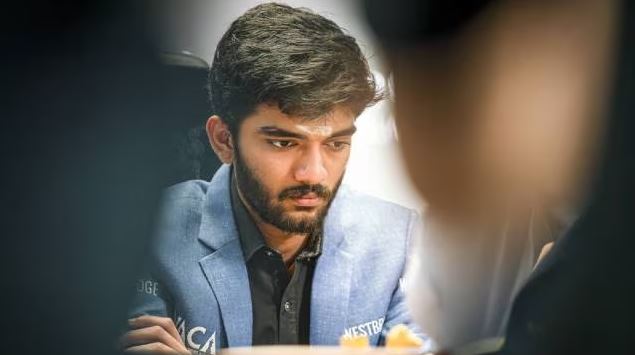Gukesh became the youngest world champion in history after defeating Ding Liren in a 14-game World Chess Championship match in Singapore. For the first time in nearly three weeks, D Gukesh acted like the 18-year-old he is. Overcome by the gravity of the situation, the teenager from Chennai began to sob at the chessboard. It’s not every day that you win the world championship. Gukesh became the youngest world champion in history after defeating Ding Liren in a 14-game World Chess Championship match in Singapore.
In fact, the succession line of world chess champions, which began in 1886 and has seen 17 men accede to the throne, has never included a teenager. Before Gukesh, the youngest world champion was Garry Kasparov, who was 22 years, six months, and 27 days old. Magnus Carlsen, who has decided not to defend his title in 2023, was 22 years, 11 months, and 24 days old when he won his first championship in 2013. “This was probably the best moment in my life,” Gukesh remarked of his opponent’s blunder in the 55th move of Game 14 on Thursday, which led to his victory. “I’ve been dreaming about this moment since I started playing chess, and I’ve been living it ever since than 10 years,” he said.

Up until that moment, the game seemed destined for a draw. However, a poorly timed rook move (55.Rf2) led to Ding losing his final defensive piece, setting up an unavoidable checkmate. In essence, one wrong move cost Ding the game, the match, and the championship title.
By this point, both players had been battling for over four hours. Gukesh held a slight advantage with three pawns remaining on the board compared to Ding’s two. Additionally, he had an extra hour on the clock. However, Gukesh wasn’t playing for much more than hope until the 55th move shifted the game’s dynamics.
It was at this moment that Gukesh’s usually unreadable expression broke into a smile.
Throughout the championship, which began on November 25, Ding had occasionally tried to read Gukesh’s face, perhaps looking for a hint of his emotions. But Gukesh remained stoic, never revealing any sign of his thoughts.
Once he became the world champion, Gukesh’s feelings came pouring out. He also showed a great deal of empathy.
“Before I say anything else, I must speak about my opponent. We all know who Ding Liren is. He’s been one of the greatest players in history for years, and to witness the immense pressure he faced and the fight he put up in this championship proves what a true champion he is. I’m deeply sorry for Ding and his team, and I want to thank him for the incredible display he put on,” Gukesh remarked.
Ding had previously opened up about his struggles with depression off the board, as well as his lack of self-confidence during games.
“Regardless of what others say about Ding, he’s a genuine world champion,” Gukesh stated, referring to comments made by former champions like Magnus Carlsen and elite grandmasters such as Hikaru Nakamura, who had predicted a crushing defeat for Ding.
Despite the predictions, Ding didn’t collapse under pressure. However, he did make three critical mistakes, each resulting in a loss.
The outgoing champion, Ding, was also gracious in his defeat. “Considering my fortunate escape in yesterday’s game, it’s only fair I lost today. I have no regrets,” he said before leaving the press conference.
As Ding walked out, Gukesh stood up and applauded his opponent, waiting until Ding had exited the room before sitting down. Even in victory, Gukesh remained thoughtful and courteous.
Just moments earlier, after his opponent had resigned, Gukesh, despite his emotions, stayed at the chessboard, wiping away tears but still carefully placing the pieces back, as though it was his responsibility to return everything to its rightful place.
Gukesh’s victory was a testament to his perseverance. Many other grandmasters might have settled for a draw and taken the match to a tie-breaker the following day, where faster time controls would be used.
However, for the third time during the 2024 World Chess Championship in Singapore, Gukesh refused to accept a draw, even when a win seemed unlikely. His determination, which hadn’t paid off in earlier games, ultimately led him to become the world champion on Thursday.
For some time now, it has seemed like chess is entering an era dominated by Indian prodigies. This shift began with the record number of Indian players qualifying for the Candidates tournament earlier this year and continued with the Indian teams securing double gold at the Budapest Chess Olympiad. Former world champion Garry Kasparov even described it as an “Indian earthquake in chess.”